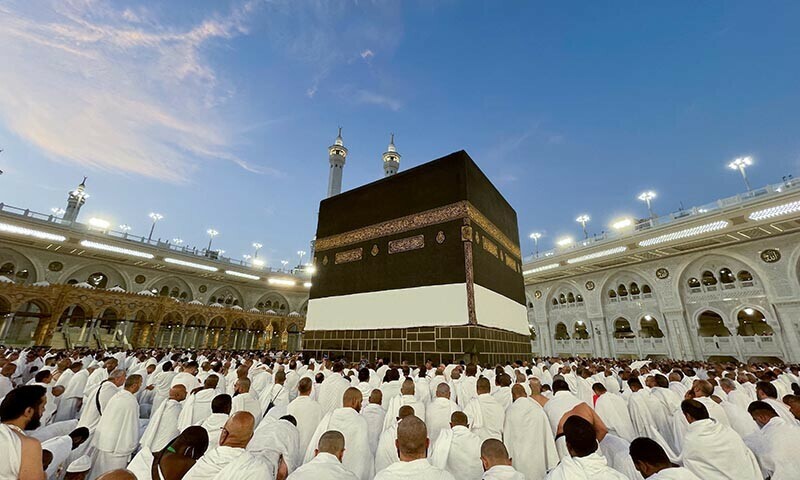Islamabad, June 3, 2025: More than 1.3 million Muslim have gathered into Makkah ahead of this year’s Hajj, as Saudi officials vow to deliver a safer pilgrimage amid scorching temperatures and a crack-down on unauthorized visitors.
Following last year’s deadly heatwave, which claimed 1,301 lives, authorities have tightened up measures to protect pilgrims. Forecasts predict daily highs over 40°C as the world’s largest annual religious gathering begins.
Twenty-five ministries and 40 agencies have deployed roughly 250,000 personnel across Makkah. Officials have added 50,000 square metres of shaded areas, mobilized thousands of medical staff, and installed more than 400 cooling units. New drone fleets and AI-driven monitoring systems will track crowds and swiftly identify heat-related emergencies.
Monday’s searing heat already prompted the health ministry to treat 44 cases of heatstroke. Despite the extreme conditions, many pilgrims expressed gratitude. “This is truly a blessing from Allah,” said Abdul Majid Ati, a Filipino lawyer, outside the Grand Mosque. Abdulhamid, a 27-year-old Nigerian traveler, admitted it felt “very, very, very hot” but was thrilled to complete his second consecutive pilgrimage.
READ MORE: Saudi Arabia Introduces Drone-Based Medicine Delivery for Hajj Pilgrims
This year Hajj fall during June’s hottest month, and unregistered pilgrims remain at high risk. Last year, most deaths were linked to those without permits, who lacked access to air-conditioned tents and emergency transport. In response, Saudi authorities have intensified raids, drone patrols, and text alerts to deter illegal entries. Offenders face heavy fines, deportation, and up to a ten-year ban from the kingdom.
READ MORE: Hajj 2025: Saudi Arabia To Provide One Million Cubic Metres Of Water Daily
Hajj permits are distributed by quota and lottery. Yet the steep cost leads many to attempt entry without authorization despite the severe penalties.
With memories of the 2015 Mina stampede still vivid, Saudi Arabia is determined to prevent calamity. As the Custodian of the Two Holy Mosques, the kingdom earns billions from Hajj and Umrah, making the pilgrimage both an economic pillar and a source of national pride.









